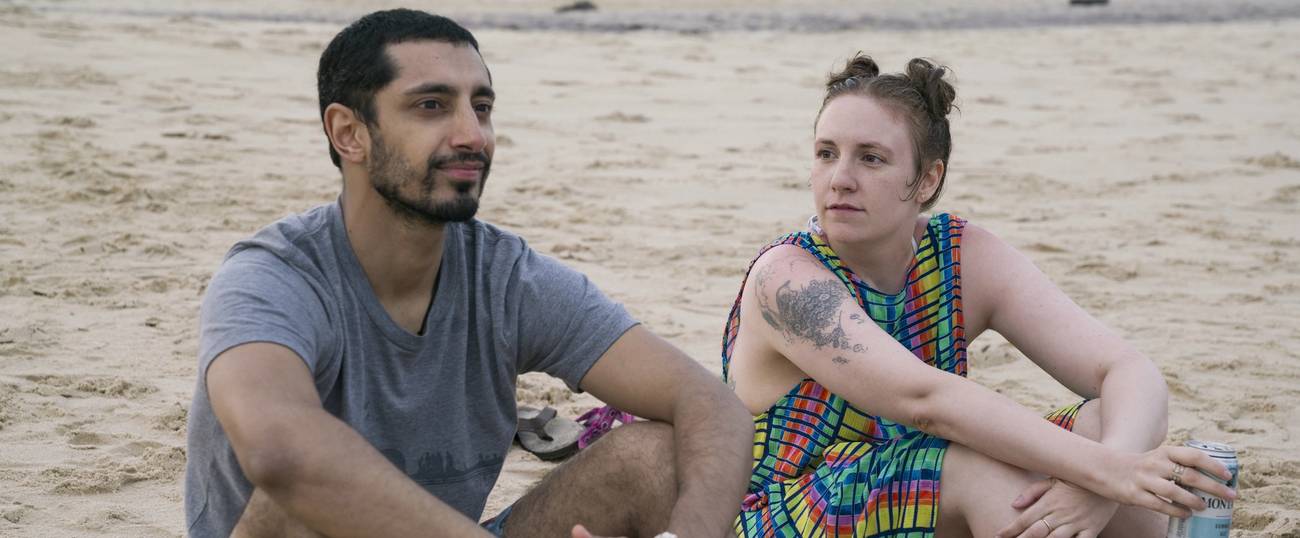Like a City Girl, Hannah Seeks Peace in Montauk
On the season premiere of ‘Girls,’ Hannah goes to the Hamptons to research a surfing retreat




The excellent first episode of the final season of Girls, “All I Ever Wanted,” offers viewers what is perhaps one of the best full character studies of Hannah we’ve seen to date. The episode picks up right where Season 5 left off, for Hannah: She publishes a “Modern Love” column about Jessa and Adam’s relationship (“Losing My Best Friend To My Ex-Boyfriend”) in The New York Times—a triumph that she follows by treating her next writing project—about a surf camp retreat in the Hamptons attended by mostly wealthy, white, middle-aged housewives, for whom surfing is the new yoga—with characteristic laziness and self-absorption. Once she arrives in Long Island, Hannah blows off the assignment to experience surf camp, instead faking an injury. She ends up drinking herself sick and sleeping with her surfing instructor.
But what I found most interesting (and less obvious) in the new episode is the dichotomy that the surf retreat introduces: a carefree, country lifestyle versus the constant buzz of New York City life.
Though the Hamptons (and Long Island) are not exactly the opposite of the Big Apple, the feeling of freedom that Hannah finds in Montauk is novel and refreshing precisely because it is an escape from urban drudgery nonetheless. Yet at first, she can’t seem to enjoy it. Her love interest in the episode, a surf instructor named Paul-Louis (played by Riz Ahmed of Nightcrawler and Rogue One fame), is incredulous when she tells him she doesn’t like the beach. So he decides to take her around and show her what his lifestyle is all about, and ultimately, she comes around. In a charming sequence of the two frolicking on the beach, Hannah seems genuinely happy.
“When nature puts on a show, you gotta come watch,” Paul-Louis tells her, and she has no witty, ironic response.
“God, I was so ready to hate this,” she says.
“It’s so much easier to love something than to hate it,” he responds.
She observes the fundamental difference of attitude that seems to be present in this beach town, commenting, “All my friends in New York define themselves by what they hate. I don’t even know what my friends like.”
The pace of life, the genuineness, the thoroughly un-Brooklyn-ness of this coastal town is a welcome change for Hannah. For instance, she’s genuinely intrigued by the fact that Paul-Louis didn’t necessarily have a specific “goal, something you wanted to be when you grew up.” She even considers renting an AirBnB and staying in Montauk for a while (she is less keen on the idea when she learns that Paul-Louis has a girlfriend, and that his attentions to her are simply part and parcel of his open relationship).
This isn’t the first time we’ve seen Hannah try on a new lifestyle in an upstate escape from New York. In Season 5 when she goes with her mother to a women’s empowerment retreat, she constantly gets in trouble for being on her phone, in violation of the retreat’s unplugged policy, which she resents, along with the entire ethos of the program. Yet in that episode too, she finds some unexpected value, ultimately realizing that she is relieved to be away from Fran and that perhaps she shouldn’t ignore what that signals. And it won’t be the last such situation: No spoilers here, but in next week’s episode, Hannah will meet a woman in a small town who makes her question some of her assumptions about New York City careerism and obsession with appearances.
There is an interesting Jewish/goyische element present in this dichotomy of New York City versus these escapes. Hannah’s freewheeling experience with nature in this episode is antithetical to her Woody Allen-esque, New York Jewish anxiety (see Dunham reference her real-life Jewish anxiety in a segment of Inside the Actors Studio where she talks about her extensive childhood ailments). Relaxed, country living is the opposite of urban Jewish neurosis. I’m reminded of the famous Lenny Bruce line: “If you live in New York or any other big city, you are Jewish. It doesn’t matter even if you’re Catholic; if you live in New York, you’re Jewish. If you live in Butte, Montana, you’re going to be goyish even if you’re Jewish.”
But, like Alvy Singer, Woody Allen’s character in Annie Hall, Hannah Horvath does find a sort of comfort in these goyische experiences, itself, perhaps, a Jewish process. At the end of the episode, she sits at a beach bonfire with Ahmed’s character, singing along to “She’s So High” as someone plays guitar. It’s the epitome of perfect, carefree, campy happiness. But as the scene fades out, at the last moment, her facial expression changes: this is not contentment. Or if it is, the contentment she finds in Montauk is not her fate. Even though she’s happy there by the end of the episode, there’s a reason she felt so out of place at the beginning. It’s back to urban Jewish anxiety for Hannah.
*
Fun fact: After her editor at “Slag Mag” assigns her the surfing story, Hannah responds, “It’s like I’m a millennial Gidget—who by the way was Jewish, which no one talks about.” Her editor then shuts her down, erroneously: “She wasn’t, and that’s not the angle.” (Hannah was right; Alice Gregory profiled the real life Gidget in the Shavuot 2016 print edition of Tablet.)
Miranda Cooper is an editorial intern at Tablet. Follow her on Twitter here.